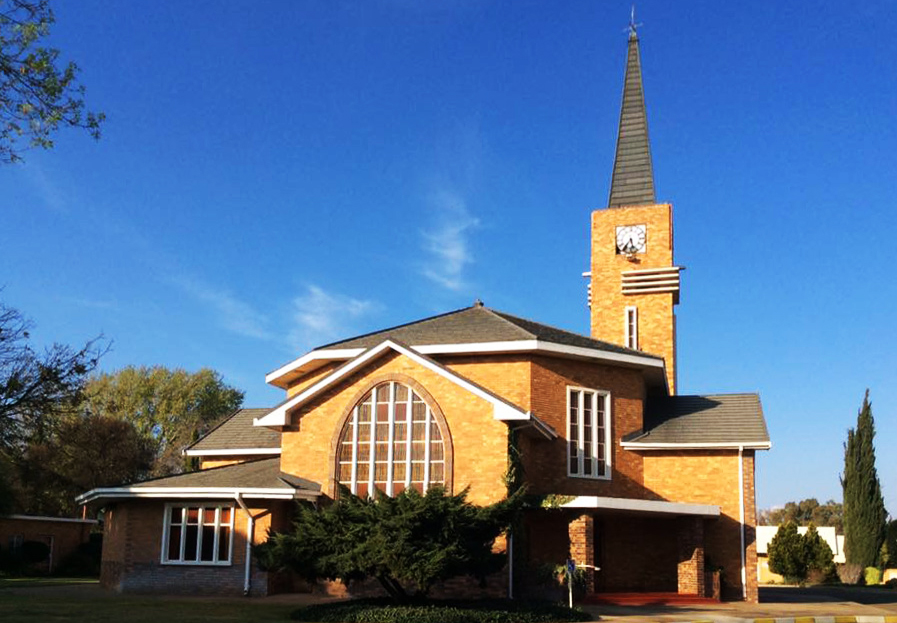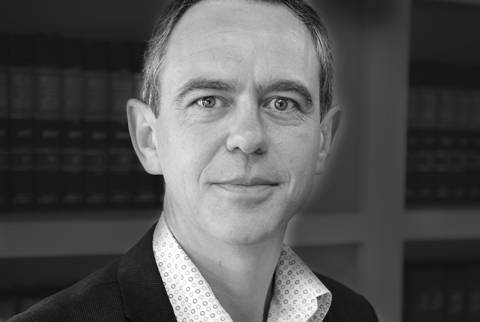Back in 1972 I lived with my parents and four sisters in Hennenman, a small Free State town (now part of the Matjhabeng Local Municipality) near the mining town of Welkom. The town was strictly segregated along racial lines in accordance with the National Party regime’s policy of apartheid. The local butcher (Griffioen slagghuis) with its sawdust floors had separate entrances for white customers and black customers, as did the post office and the municipal offices. It goes without saying that the schools were also racially segregated.
Us (white) boys attending Hennenman Laerskool did not wear shoes to school (“shoes are only for sissies”), played rugby during break (I became an expert at running up and down the field while making sure that I was never close enough to the ball to have to catch it), and spent school holidays at the whites-only municipal swimming pool.
At school we were told that Communists in Russia wanted to take over South Africa to destroy our Christian way of life. When I pointed out to a teacher that the Communists in Russia probably had their own problems (my father must have told me that), the teacher smiled benevolently and said, yes, she had heard that my family used to live in Johannesburg.
On Sundays our entire family attended the local whites-only Dutch Reformed Church (pictured bellow) to listen to the dominee whose job it was to make us fear God and the Communists; but above all else, to make us fear black people.

The apartheid regime, we were told, was installed and blessed by God, and racial “integration” was at best unholy and at worst the devil’s work.
Apart from the Flamingo Kafee (where we bought the Rapport newspaper and powdery sweets which revealed messages – “I love you”; “You are my Sweetheart” – when you licked them), all shops were closed on a Sunday. It was also forbidden to play sport on a Sunday and in terms of the Control of Dancing Ordinance 12 of 1957 it was a criminal offence to dance at a place of amusement or recreation anywhere in the Free State on a Sunday.
In the summer of 1972, there was a huge commotion among white inhabitants when it was announced that the municipal swimming pool would open on Sunday afternoons between two o’clock and five o’clock – although diving into the pool was forbidden on a Sunday, because Sunday was a rest day.
In that world, our identity as white Afrikaners was inextricably linked to the belief that as white Christian Afrikaners we were the uitverkore volk (a nation chosen by God), who had a divine right to rule South Africa. In terms of this ideology, Christianity equalled white supremacy and justified it. The Bible, we were taught, justified apartheid.
At the same time, we were told that although Afrikaners were a chosen people, we were caught up in a never-ending fight for survival. There was danger all around: Die swartgevaar. Die rooigevaar. The devil was cunning and worked in mysterious ways. We needed to remain vigilant because our “white civilisation” was under threat.
Maybe my depiction is too crude, and some of these ideas were conveyed to us in a slightly more subtle way. But maybe these memories are accurate and just look crude with the benefit of hindsight.
In any event, I was reminded of Hennenman when I read a column recently penned by Frans Cronje, the CEO of the Institute of Race Relations.
Ironically, Cronje argues that his organisation believes that “the battle of ideas” must be won in the court of public opinion. But he then proceeds to alienate the large majority of South Africans by employing the kind of alarmist language that appears to have as its audience the small, conservative, overwhelmingly white, group of South Africans whose parents might very well have been my dominee or my teachers in Hennenman in 1972. I found the following paragraph particularly telling:
“What South Africa’s farmers face today is therefore not about poverty, or public pressure, or even land itself. They have been swept up in a far deeper political and ideological conflict, the battle of ideas, over whether South Africa will survive as a modern, free, and open society or whether it will sink into a socialist and later communist morass of poverty, oppression, and state control. It is a battle for the survival of the Judeo-Christian ethic in southern Africa.”
While Cronje attempts to present the argument that there is a “battle” of ideas raging in which the very survival of a way of life is at stake in non-racial terms, to me it sounds suspiciously like an updated version of swartgevaar and rooigevaar rhetoric. When you read this paragraph in the light of the historical context sketched above, the argument that the survival of a “Judeo-Christian ethic” is at stake sounds very much like an argument that white Afrikaners, their way of life and the privilege that flows from it, are at stake and must be defended against the (mostly black) government.
I would be surprised if this kind of rhetoric were to win over the majority of South Africans. Instead, I suspect it will alienate the vast majority of South Africans exactly because it is presented in such an apocalyptic manner and uses language that harks back to Afrikaner Nationalism.
But there is another reason why the argument appears to be odd. It invokes the Constitution as an ally, but presents an argument that is completely at odds with the relatively progressive jurisprudence of the Constitutional Court, which recognises the need to respect and celebrate diversity of belief and opinion in South Africa.
In response to the fact that an overbearing Christian national ethos held sway during apartheid, the South African Constitution no longer protects or promotes the dominance of a particular Christian-inspired ethic (which does not mean that this ethic does not remain a powerful force in society).
The Constitution demands of us to think differently about the world we live in. Cultural, religious, and other differences are no longer viewed as something to be feared, something that you have to do battle with and defeat. Instead such differences are rhetorically accepted and celebrated.
(Of course, just because the Constitution demands this does not mean it has actually happened to the extent that the judges of the Constitutional Court would have wished. Which says something about the limits of the Constitution and the law to change deeply entrenched economic and social power relations in society.)
When the Constitutional Court engages with issues of difference and diversity, its language is worlds removed from the kind of language employed by Cronje. For example, while rejecting the argument of religious conservatives that the legal recognition of same-sex marriage posed a mortal threat to Christianity and a particular Christian view of marriage, the Constitutional Court stated in Minister of Home Affairs and Another v Fourie and Another that:
“The hallmark of an open and democratic society is its capacity to accommodate and manage difference of intensely-held world views and lifestyles in a reasonable and fair manner. The objective of the Constitution is to allow different concepts about the nature of human existence to inhabit the same public realm, and to do so in a manner that is not mutually destructive and that at the same time enables government to function in a way that shows equal concern and respect for all.”
When people invoke the Constitution and especially the property clause in it to argue that the survival of a certain way of life is at stake, they tend to ignore some parts of the text of the Constitution as well as the jurisprudence of the Constitutional Court on the matter. One section of the property clause that is often ignored is section 25(5), which places a positive obligation on the state to take steps to address the unequal distribution of land in South Africa. The section states:
“The state must take reasonable legislative and other measures, within its available resources, to foster conditions which enable citizens to gain access to land on an equitable basis.”
There is also a tendency to ignore the jurisprudence of the Constitutional Court on property rights. The court is far less wedded to an absolutist idea of the right to property than writers like Cronje sometimes suggest. For example, in Agri South Africa v Minister for Minerals and Energy the Constitutional Court held that legislation which froze the ability to sell, lease or cede unused mineral rights did not constitute an expropriation of property (which meant that no compensation needed to be paid for limiting the property rights of the owner in this manner). That judgment explicitly situates any discussion of property rights within this historical context, stating that:
“... the architecture of the apartheid system placed about 87 percent of the land and the mineral resources that lie in its belly in the hands of 13 percent of the population. Consequently, white South Africans wield real economic power while the overwhelming majority of black South Africans are still identified with unemployment and abject poverty. For they were unable to benefit directly from the exploitation of our mineral resources by reason of their landlessness, exclusion and poverty.”
An important discussion is to be had about land redistribution in South Africa. But it is very difficult to have a meaningful discussion on this when protagonists use alarmist language and ignore the Constitution they claim to invoke. DM




